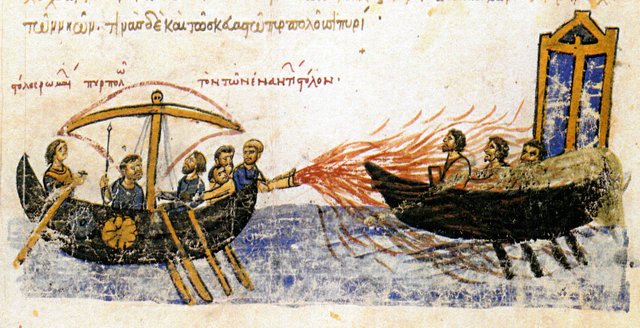Byzantine mistake

The Islam that arose in the 7th century posed a serious danger for Christian Byzantium. The Byzantine emperor Heraclius (ruled 610-641), who had just defeated the Persians (in 627-628), took the news of the new threat coming from Arabia. The war years physically and psychologically exhausted him. However, the forces of the Sassanid Persian power were further undermined. The Arabs took advantage of a successful historical moment and began their expansion just when their two main rivals, Byzantium and the Sassanid state, were in dire need of rest, like boxers after a heavy fight. Irakly also faced with a religious conflict within the empire between supporters of the two Christian doctrines - monophysites and monothelites. Monophysitism (Greek "one nature"), the teachings of Archbishop Evtikhy of Constantinople, arose in Byzantium in the 5th century. It claimed that the human nature of Christ was absorbed in the divine hypostasis, and therefore His human flesh was judged as seeming. Monophyleticism (Greek "one will") was formed in Byzantium in the VII century. This teaching recognized that Christ possessed two essences - both human and divine, but one will and energy - divine. Internal political problems completely weakened the emperor. Perhaps, due to the accumulated fatigue, he was changed by common sense: in the Syrian campaign that began soon, he acted much less decisively than in 622-629 against the Persians.

In the late 6th - early 7th centuries, Christian, Jewish and Zoroastrian missionaries actively preached among the nomad tribes of Arabia. Many idolaters preferred to accept Christianity in its Monophysite form (it was preserved, for example, in the Armenian church). This applies, in particular, to the tribe of banu-gasan, who lived along the southern border of the Byzantine Empire. His soldiers have traditionally served as mercenaries from the Byzantine emperors and have significantly helped Heraclius in his campaigns against the Persians. Naturally, good relations with such tribes were important for the country's defense capability. However, the emperors had to play the role of not only generals, but also pillars of faith, or rather, the orthodox (orthodox) church, condemning monophysitism as heresy. Unfortunately, just at this time, when Byzantium needed an alliance with the Christian Arabs, Orthodoxy led another offensive against heretics. Irakly, forced to support the state religion, tried to impose a new doctrine on monothelitism on the banu-gasan tribe - an officially acceptable compromise between Orthodoxy and Monophysitism. However, the Arab-Christians did not like this very much.

Meanwhile, Muslim Arabs launched an offensive against Byzantine possessions - Syria and Palestine, in 634 they took Gaza and approached Jerusalem. Irakli sent a large army to meet his enemies, led by his brother, but she was defeated. The second army, commanded by Theodore Tritirius, was also defeated by the Gentiles. Finally, considerable forces were thrown against the Muslims, including 12,000 Christian Arabs, led by the Armenian commander Vagan. The general battle took place on August 20-22, 636, near the Yarmuk River, the left tributary of the Jordan (along the modern border of Syria and Jordan), during a sandstorm. During the fighting, banu-gasan and other Christian Arabs took the side of the Muslims. 40 thousandth Byzantine army was defeated. This betrayal had a huge impact on the whole world history. Soon the territory of Syria and Palestine, including Jerusalem, was under the rule of Muslims. They showed religious tolerance, and the monophysite Christians everywhere welcomed them as liberators from persecution by Orthodox Byzantium. Thus, quarreling with the border tribes, a powerful empire lost the war and lost a significant part of its possessions, including the birthplace of the Christian religion.